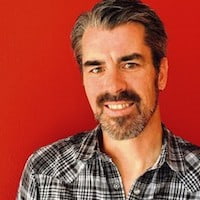13 Tenets Of User Experience
In my career as a user experience professional, part of my purpose has always been to help push our profession forward. And I’ve had the great privilege of being able to do just that in a myriad of ways — by writing books and articles, speaking at conferences all over the world, delivering in-house training workshops at wonderful companies, and simply doing the work for a great many clients.
If I could be remembered for just one thing, I’d want it to be this, because this is what designers and companies need to know and understand about the nature of user experience as a profession, a goal, an idea. And it’s taken me 13 years to be able to say it in exactly this way.
Tenet 1:
"User experience is the net sum of every interaction a person has with a company, be it marketing collateral, a customer service call, or the product or service itself. It is affected by the company’s vision and the beliefs it holds and its practices, as well as the service or product’s purpose and the value it holds in a person’s life."
Tenet 2:
"User experience is strategic. It begins with an idea to improve the lives of users, and continues through every moment of the customer lifecycle, from attention to abandonment and beyond. It is driven by a vision that guides and justifies every design decision."
Tenet 3:
"Every detail of a company and its product says something about it. User experience strategy and design ensures that these messages are put forth with intention and purpose. Design extends into each and every detail, and each and every detail can indeed be designed."
Tenet 4:
"User experience is a process of discovery, vision definition, strategy, planning, execution, measurement and iteration. It requires flexibility, and a willingness to be wrong until you are right."
Tenet 5:
"Great products and services require bravery. Design puts a shape to your courage."
Tenet 6:
"A great service or product is rarely the mere logical result of research. Most often, it is the result of a courageous belief that what you are doing will change the world, and a determination to do it well."
Tenet 7:
"The solvers of the world’s problems will be those who apply their skill, talent, knowledge and experience to design and redesign the world around us. Whether they call themselves designers or not, the creators of the future will be those who design (as in, on purpose, not by mere fact of being involved)."
Tenet 8:
"The goal of a designer is to listen, observe, understand, sympathize, empathize, synthesize and glean insights that enable him or her to “make the invisible visible” (as Hillman Curtis put it) — to pull treasure out of nothing, to pull value out of vapor."
Tenet 9:
"The job of a designer, just like that of a writer, is to twist and stretch and shape a conceptualized piece of work over and over again until it becomes the masterpiece the world needs it to be."
Tenet 10:
"Designers act not on opinion, but on insight. They do not mandate, but educate. While the best decision can often only be based on the best guess, designers inform their instincts every single day so that these guesses may be right."
Tenet 11:
"Designers enable companies to change the world, define the future, create value and make a ton of money, and the evidence of this is endless."
Tenet 12:
"A user's experience belongs to the user. An experience cannot be designed. It can, however, be influenced. A designer’s job is to be the influencer."
Tenet 13:
"Designers do not manage. They lead."
Further Reading
- Better User Experience With Storytelling – Part One
- How Imagery Drives User Experience
- What Is User Experience Design? Overview, Tools And Resources
- Why User Experience Cannot Be Designed



 Flexible CMS. Headless & API 1st
Flexible CMS. Headless & API 1st





